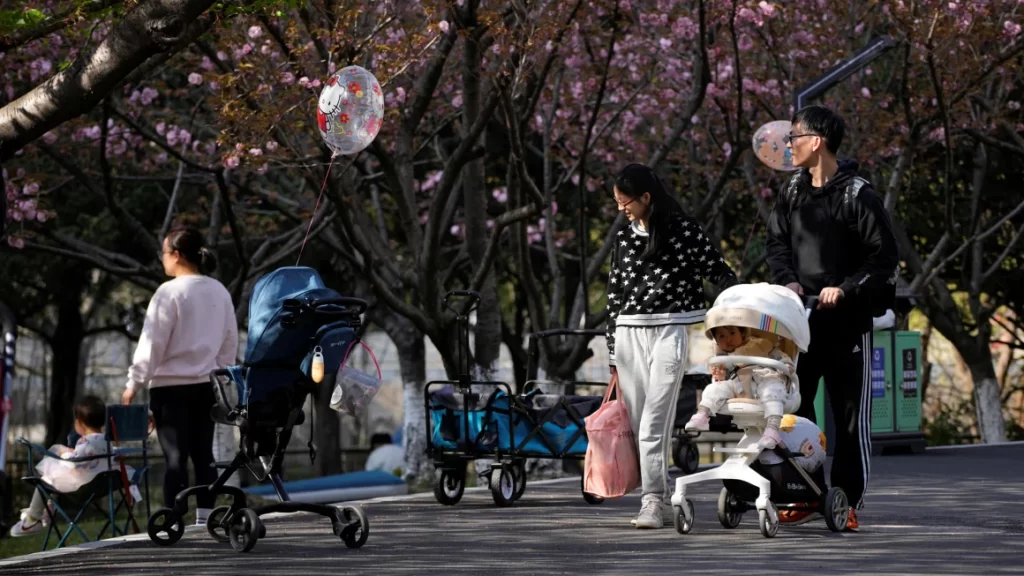China’s population shrank for the second year in a row in 2023, marking a deepening of a demographic challenge set to have significant implications on the world’s second largest economy.
The population fell in 2023 to 1.409 billion, down some 2.08 million people from the previous year, China’s National Bureau of Statistics (NBS) announced Wednesday.
The NBS confirmed that China’s economy grew by 5.2% last year, compared to a government target of around 5%. While this expansion marks a significant pick-up over 2022, when China’s economy grew by just 3%, it is still one of the country’s worst economic performances in over three decades.
China’s birth rate also dropped to a new record low of 6.39 births per 1,000 people, down from 6.77 a year earlier and the lowest level since the founding of Communist China in 1949. Some 9.02 million babies were born, compared with 9.56 million babies in 2022.
The country’s work force, composed of people in the 16 to 59 age group, dropped by 10.75 million from 2022, while the number of elderly people above 60 increased by 16.93 million from 2022.
The latest figures come after China’s population declined for the first time in decades in 2022 in what analysts said was the country’s first drop since the 1961 famine triggered by former leader Mao Zedong’s Great Leap Forward. Last year, China was surpassed by India as the world’s most populous country.
The slowing birth rate comes despite a push from the government to encourage more married couples to have children following decades of restrictive birth policies.
Beijing scrapped its decades-long and highly controversial “one child” policy in 2015, after realizing the restrictions had contributed to a rapidly aging population and shrinking workforce that could severely distress the country’s economic and social stability.
— CutC by bbc.com


